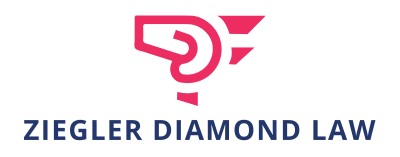Eviction and Foreclosure Moratorium: Final Extension to July 31
 On Thursday, June 24, the Biden Administration announced that it is extending the tenant eviction and federal mortgage foreclosure moratorium until July 31. The order was signed by CDC Director Rochelle Walensky. The moratorium was in place to help those suffering economic problems due to the coronavirus pandemic. This moratorium is particularly important in states like Florida which have no state eviction moratorium.
On Thursday, June 24, the Biden Administration announced that it is extending the tenant eviction and federal mortgage foreclosure moratorium until July 31. The order was signed by CDC Director Rochelle Walensky. The moratorium was in place to help those suffering economic problems due to the coronavirus pandemic. This moratorium is particularly important in states like Florida which have no state eviction moratorium.
According to the CDC, “The COVID-19 pandemic has presented a historic threat to the nation’s public health. Keeping people in their homes and out of crowded or congregate settings — like homeless shelters — by preventing evictions is a key step in helping to stop the spread of COVID-19.”
The Last Extension of the Eviction and Foreclosure Moratorium
The foreclosure and eviction moratorium was originally issued in September 2020, and it has been extended a number of times. The last extension was until the end of June. However, in the face of many states’ struggles to process applications and distribute emergency rental and housing aid from the American Rescue Plan and pressure from housing advocates, the government has allowed one last final month. After all, it doesn’t help to be eligible for rental or foreclosure assistance if you have already been forced out of your home.
In addition to other housing provisions, the American Rescue Plan provides for
- More than $21.5 billion in emergency rental assistance to be administered by the Treasury Department to help millions of families keep up on their rent and remain in their homes.
- Florida received over $800 million for emergency rental assistance.
- Nearly $10 billion to be administered by the Treasury Department to help homeowners behind on their mortgage and utility payments to avoid foreclosure and eviction.
- Florida was allocated $676 million through the Homeowner Assistance Fund (HAF), which was established by the American Rescue Plan.
The City of Tampa and Hillsborough County received $366 million in COVID-19 relief funds, but that is a total figure. Not all is dedicated to rental and mortgage relief.
Beyond Economic Reasons for Eviction and Foreclosure Moratorium Extension
In addition to helping people stay in their homes despite the economic stress of the pandemic, the extension was granted to help limit spread of the corona virus. According to the CDC, when people are forced out of their homes, they are often forced into crowded, unsafe conditions. They may move in with family or friends or have to go to homeless shelters. Others may end up on the street.
More Information for Homeowners and Tenants
For more information about the protections provided under this moratorium extension, see the: FACT SHEET: Biden-Harris Administration Announces Initiatives to Promote Housing Stability By Supporting Vulnerable Tenants and Preventing Foreclosures.
Homeowners and renters can also visit www.consumerfinance.gov/housing for up-to-date information on their relief options and deadlines.
Florida Tenants
Renters should see the CDC’s Eviction Protection Declaration to see if they qualify for protection from eviction until the moratorium ends. Those who do should complete it, sign it and give it to their landlord who will suffer penalties if they violate the CDC Eviction Order. Do this now, while you are still protected from eviction.
Florida renters and landlords can apply for rental assistance at the Our Florida website. Renters can go through step-by-step questions to determine if they qualify.
For further resources in Hillsborough County and the Tampa area, see the Hillsborough County website.
There are restrictions about who can apply for rental and utility assistance. For example, you can’t earn over your area’s median income in order to be elibible. This varies according to where you are. In the Tampa Bay area, it is $56,250 for a family of four. Tenants who earn under 50% of the median income in their area or who have been unemployed for the last three months get priority.
Florida Homeowners
If you have fallen behind on your mortgage payments for your Florida residence, you can ask for a forbearance, which provides temporary payment relief during the foreclosure moratorium. Contact a good Florida debt collection defense attorney should your lender be uncooperative.
To find out about mortgage assistance from the American Rescue Plan, you can
- Contact your mortgage servicer
- Contact a HUD-certified housing counselor at 1-800-569-4287
- Check the Florida Department of Economic Opportunity website regarding the Homeowner Assistance Fund in Florida. At the time of this writing, the site said it was waiting for further guidance from the US Treasury, but you could sign up for notification.
There are restrictions on who is eligible including those who can show
- Financial hardship after January 21, 2020 and
- Income less than 150% of the area median income
There is still some help for homeowners after July, even though the foreclosure moratorium will have ended. The departments of Housing and Urban Development, Veterans Affairs and Agriculture say homeowners who have not yet taken advantage of mortgage forbearance can still enter into Covid-related forbearance programs through Sept. 30. Expect the agencies to make announcements in July about payment reduction options.
Call Us If You Are Facing Foreclosure
If you are being threatened with foreclosure now, or if you fear your house will be foreclosed once the federal mortgage foreclosure moratorium ends July 31, contact us immediately. Some financial institutions are wrongfully proceeding with foreclosures even during the moratorium. Contact us at Ziegler Diamond Law: Debt Fighters for a free consultation by submitting this form. Or just call us directly at (727) 538-4188 in Clearwater, (813) 225-3111 in Tampa or (352) 600-1326 in Mt. Dora. There is no time to waste!


